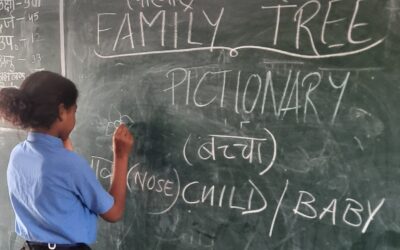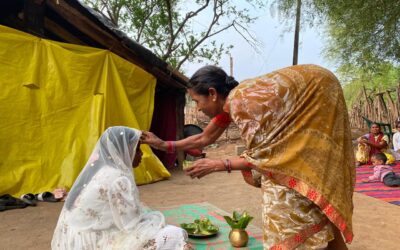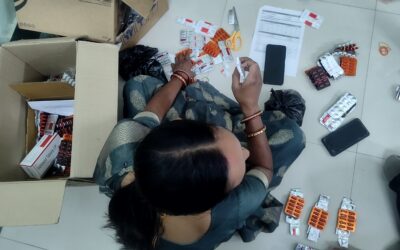One evening, when we came back to our room at Science Park, where I’m staying with my colleagues of Shiksharth, all of a sudden, the weather changed. There was heavy rain followed by storm, and to worsen the situation, came a tornado. The wind was so strong that it was throwing everything away. We took shelter and followed all possible safety measures. This natural catastrophe was an eye opener on how nature can be equally giving and devastating. We could feel the vibrations caused due to thunderstorm. It was frightening!

As scary as it looks.
The electricity was cut down which lead to a major black out across the town. In a while, the network connection was also lost. Fortunately we had plenty of food for dinner. As the saying goes “The light shines in the darkness, and the darkness has not overcome it.”, we had an amazing candle light dinner. It was a challenge to live with mosquitoes though, and we were barely able to sleep that night.
Next day, we woke up to witness the destruction that storm had left behind. Trees were ripped out from the ground, walls were collapsed; street-light poles, hoardings and gates were broken to bits and pieces.

It was once a street-light pole

Broken hoarding
A nest was lying beside a broken tree. I was devastated, thinking of the eggs that might have been injured but when I got closer, there was no sign of any life, or even death. I looked around but couldn’t find anything.

After examining the sight around us, we got back to our place and realized we were almost out of water. In absence of electricity, the ground water bore pumps were down. Majority of people in Sukma depend on ground water resources. When there was no electricity, we had to buy drinking water and depend on hand-pumps. We freshened up and walked towards our workplace, Gyanodaya, an institution which provides residential and food facility to more than 400 children. It was heart-breaking to see children standing around the hand-pump, filling their buckets for daily routine.

There was chaos at Gyanodaya. I felt really helpless and was unable to find a solution. Kids were not in the mental state to attend classes. The same situation continued for the next five days. We were living without a network connection, power supply, and had limited access to ground water only via hand-pumps. During this period of time, we even traveled to the nearest river Shabri, for bathing and washing clothes. However, it looked like an invitation for infections and diseases due to open-defecation.
By day four, everyone was completely disturbed. It was difficult for me to cope up as I’ve grown up and lived in Mumbai, where we get restless within an hour of no electricity. We can call phone numbers of respective departments that are answered 24*7 were we can report the problem to get it fixed. But the situation here was completely different. No one seemed to be as bothered about it as me and my roomates. No one did anything to report the problem.
While we were growing restless and frustrated, people from the local tribe were perfectly fine, living their lives as usual without any stress. Electricity supply became regular in Sukma only about 6 years ago, cellular network still keeps on fluctuating every now and then, and tribal people have always been dependent on hand-pumps for water. Such a situation was common for them. Whereas, for us city dwellers, it was a huge challenge as we had made our lifestyle complicated and were dependent on resources which are not really essential to sustain or to survive.
When a city dweller is asked about his/her basic needs, the answer always revolves around food, shelter, electricity and water supply. I had thought the same until I had to face this complete black out of five days. The experience was life changing. It made me simplify my needs and come out of all my comfort zones.
When electricity was back, we were glad but realized that we can live without it. There are things you ‘think’ are essential and then there are things that you actually ‘need’ for survival. I now understand the distinction between illusion of necessity and the actual necessity, and how to differentiate them from desires.




Very well expressed blog. We have grown in such a comfortable conditions, we can never imagine the conditions in these places. I appreciate you, these days will teach you a lot. All the best wishes to you Sandesh.
Thank you very much Urmila Kaku 🙂